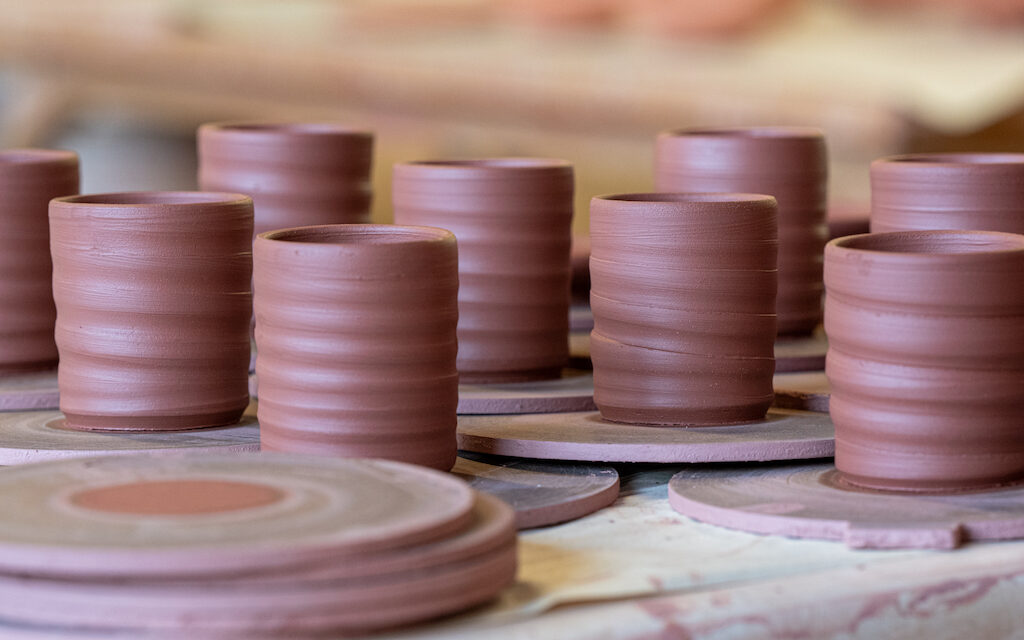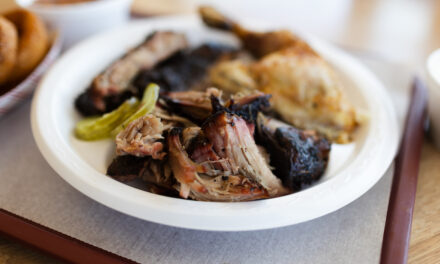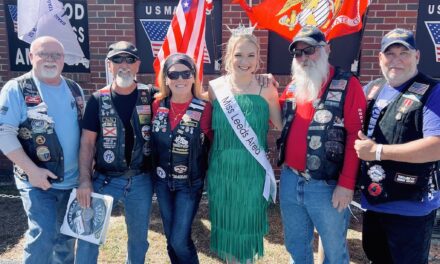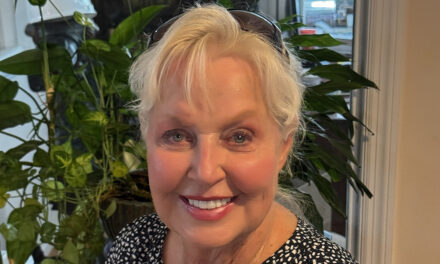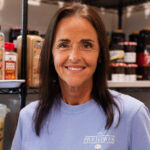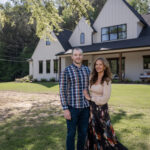By Michaela Bankston
Photos by Blair Ramsey
Just off Parkway Drive, a light brick building sits seemingly destined to rest in its place. At first glance inside, exquisite pieces of displayed pottery welcome one to Earthborn Studios Inc. Just behind there, rows of red dust-coated shelves filled with stacks of pottery, some finished and others in need of color, lead to different work areas.
In one corner women throw clay on pottery wheels, while in the other, a machine presses bricks of clay. In between, other workers mold dishes by hand. Regardless of their origin, each piece heads to one of eight kilns to harden before someone glazes them. They are then returned to the kilns for a final fire before someone sands the bottoms to create a smooth base.
The operation has grown quite a bit since Tena Payne first put her hands in clay.
Payne, who described her younger self as “all over the place” with a knack for getting into trouble, first discovered pottery in a high school art class.
“When she brought the potter in, and he sat there, and he made a pot in five minutes, it was instant gratification,” Payne said.
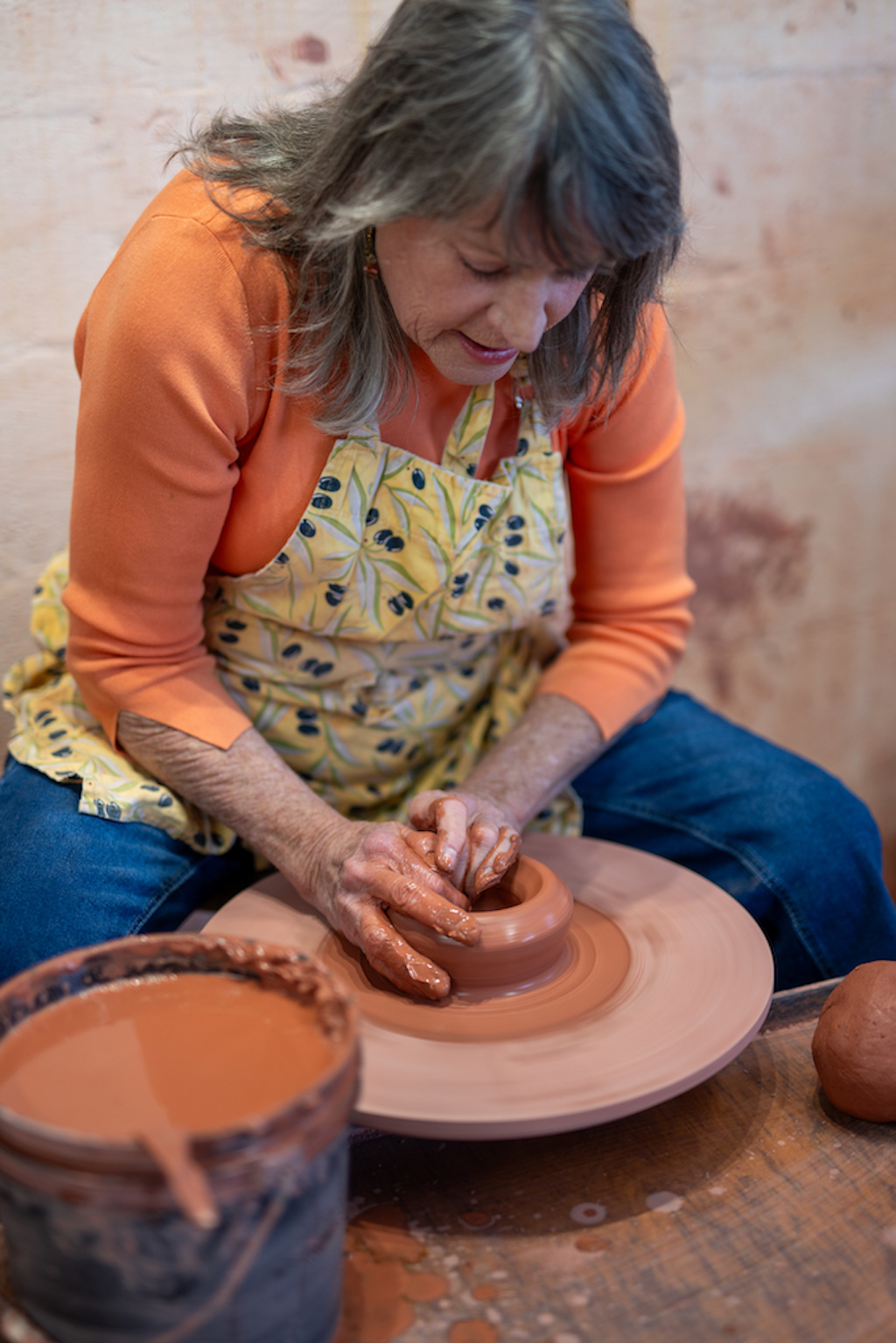
From then on, she spent free time in the art class practicing, and as a troubled teen, she had the opportunity to take home a wheel over the Christmas holiday. She checked out books from the library on pottery making to see how they held their hands and taught herself how to throw.
During these times, she first began to fall in love with “the transformation of materials.”
“You take it out of the ground; you rearrange it; you put it in the fire; and here it is forever,” Payne said.
Following high school she spent a year at the University of Montevallo honing and advancing her skills before leaving the university to marry her now husband, who moved around as a member of the Marine Corps. Though she spent some time without her hands in the clay, that did not stop her from continually reading about the process as well as the chemicals and how they all react.
Six months after the birth of their son, Payne’s husband purchased her first pottery wheel, which currently resides in the back corner of Earthborn. Back then it sat in her basement that served as her first studio. She spent nights and weekends there forging pieces to take to art shows while also working full time.
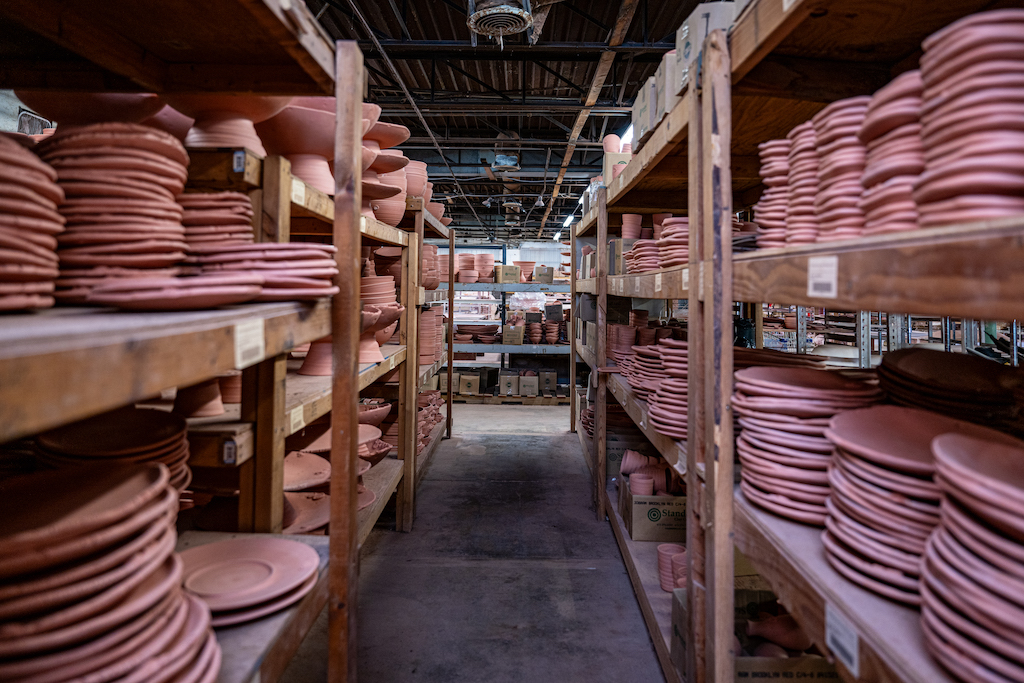
For a period in the 1990s, Payne’s full-time gig involved sifting through readers’ inquiries on having their gardens featured in Southern Living. One such letter was from a man about his shiitake mushroom farm.
“The magazine wasn’t interested in doing that, but my husband and I were fascinated,” Payne said.
They went to learn and visited other places before adding shiitake growing to their list of things they did. Their first harvest produced 60-70 pounds per week.
“I don’t know if you’ve weighed a mushroom lately, but that’s a lot of mushrooms,” Payne said.
She froze some and dried others, gave some away and sold more to grocery stores, but mushrooms still remained. She finally had the thought to venture downtown and knock on restaurant doors to ask one question: “Do you want to buy my mushrooms?”
They did, but more importantly as one of them wrote a check for the mushrooms, she noticed a piece of broken pottery on the floor. There began a six-year period of testing–clay, glazes, functionality–where each time Payne had a new version, she took the piece to new-to-town Chef Chris Hastings.
“When I noticed that he had quit complaining, I realized that I had a product I could sell to other chefs,” Payne said.
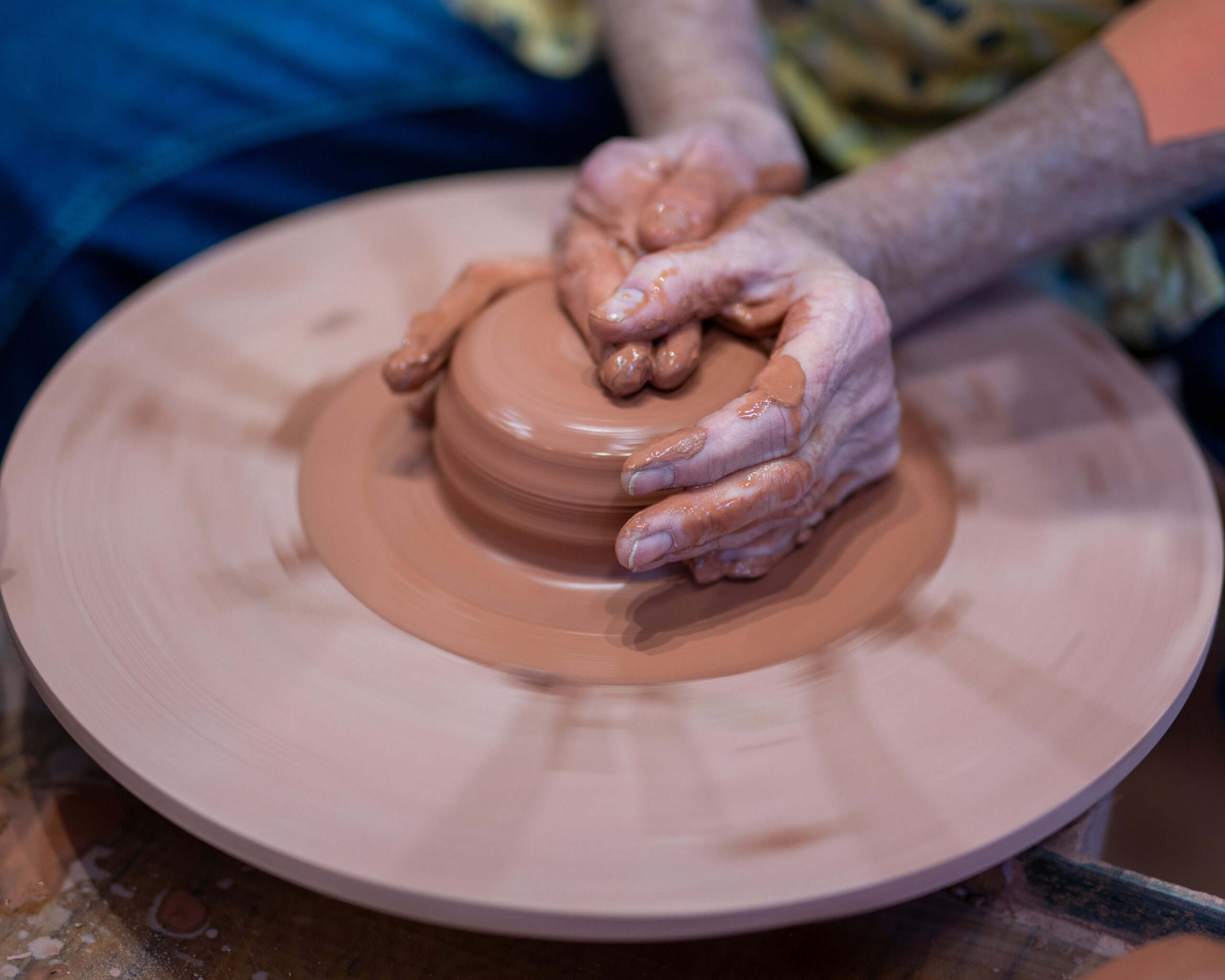
With that she began to prepare to take her art show booth to a trade show for chefs, which she attended in August 2003. Payne recalled having the only pieces at the show that were not “round and white.” She sold everything in her booth, and before the day finished, a man approached with her card in his hand to inquire about her work. Specifically, he wanted to know if she could produce 5,000 pieces.
“I thought, ‘Well that’s hypothetical. Nobody ever wants 5,000 pots,’” Payne recalled. “I said, ‘Well, I’ll find a way.’”
That man took her work to Las Vegas and sold it to the Bellagio. She was still working out of her basement.
After a failed partnership with a manufacturer, Payne had to find a way to create the pieces on her own. She took the purchase order from the Bellagio to the bank to secure the loan for the current location, hired a few people, including her son, and did just that.
Payne said she still works with the Bellagio and other MGM Resorts International properties today.
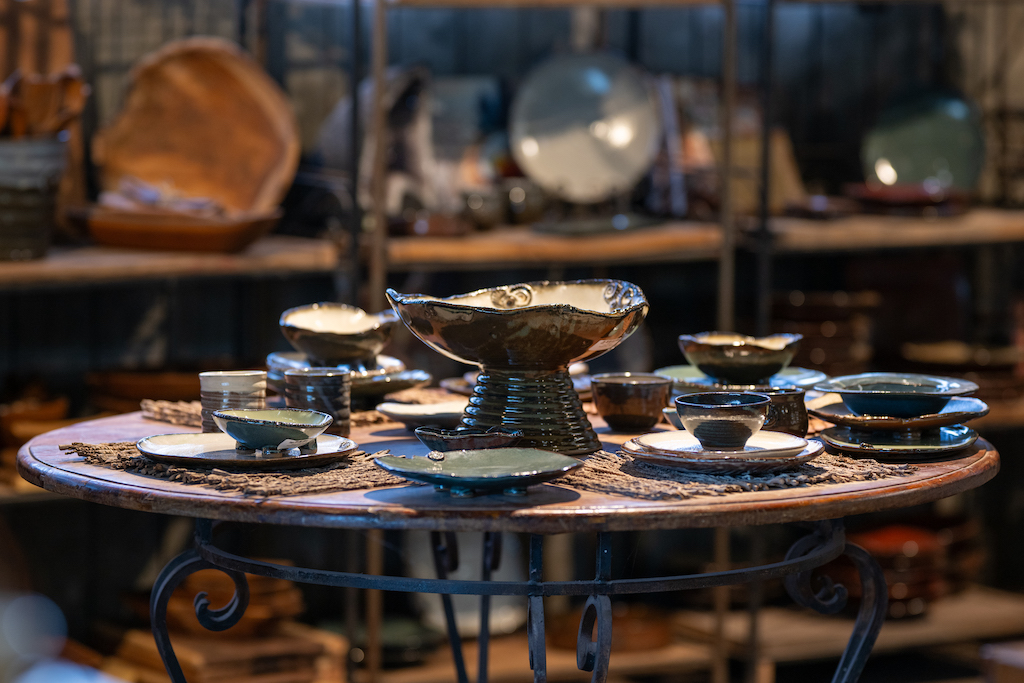
Around the same time, the man from the trade show’s company discussed mass producing her products and selling them all over the world.
“The next thing I knew they had come out with their own line, called Craft. They had knocked me off,” Payne said. “They actually lifted verbiage off my website.”
Payne said there was nothing she could do due to the size of the other company. As leaders in the industry, once the company came out with their Craft line, others began to follow suit, but Earthborn still has a few differentiating factors.
“Anybody who wants an authentic, handmade piece comes to us,” Payne said. “Anybody who wants something creative, something different, something special with their brand on it—that’s what we do.”
The handmade nature of Earthborn’s products allows the buyer creativity. Payne said she works one-on-one with chefs to create dishes that solve their specific needs before presenting them with multiple options to either “choose, tweak or start over.”
“There’s a lot of ways that you can make this cheaper and better, but you have to use automation, and it has to be the same,” Payne said. “We embrace our nuances.”
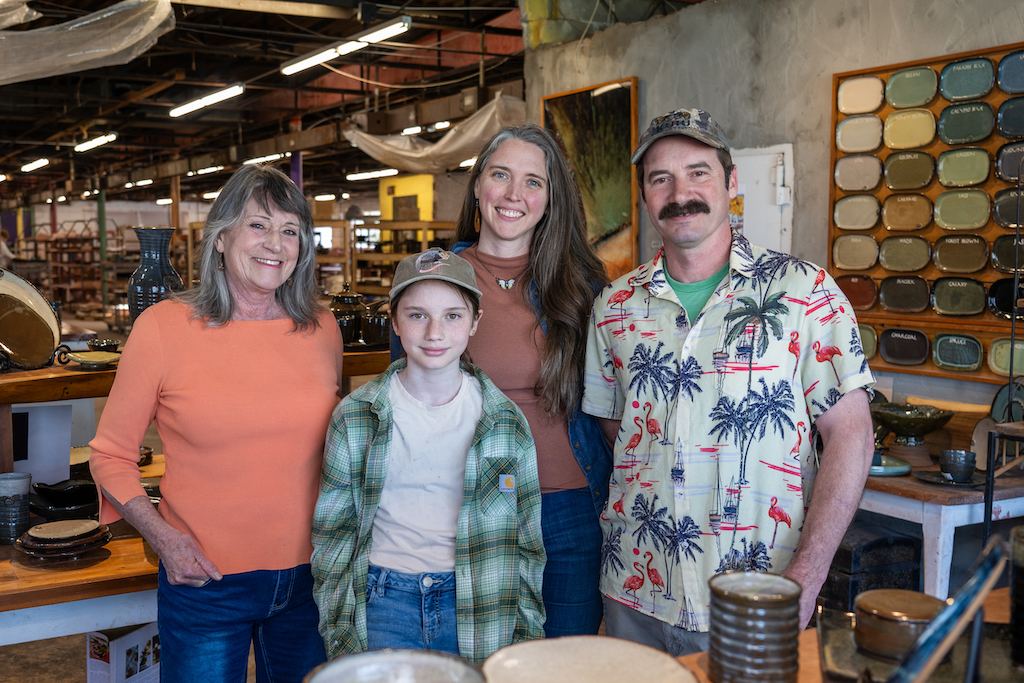
Payne said another distinction is her red clay body, which “is a blend of different types of clay to give us the attributes we want for our end result.” The red clay body solved previous issues she had with cracking, and she has used it ever since.
Almost two decades since opening the location, Earthborn is in restaurants across the United States, as well as in Amsterdam, London, Dubai and Hong Kong. Payne sells her art out of Earthborn as well as other retailers and ships her products worldwide.
“It has been a God-thing every step of the way,” Payne said.
As each door opened and she walked through, Payne gained experience that brought her here. Payne’s son, Nathan Payne, still works with her and has since been joined by his wife and three of Tena’s grandchildren. Her youngest granddaughter, 11, is too young to be on payroll, but still spends plenty of time throwing pots.
“I think there’s potential there she could be the third generation to run this thing,” Nathan said of his daughter. “She really loves it.”
In the meantime, the Payne family continues to craft products used today that will last forever.
Earthborn is located at 7575 Parkway Drive in Leeds. It is open Monday-Thursday, 9 a.m.-5 p.m., and Friday-Saturday, 9 a.m.-2 p.m. To view products and see class options, visit earthbornpottery.net.

